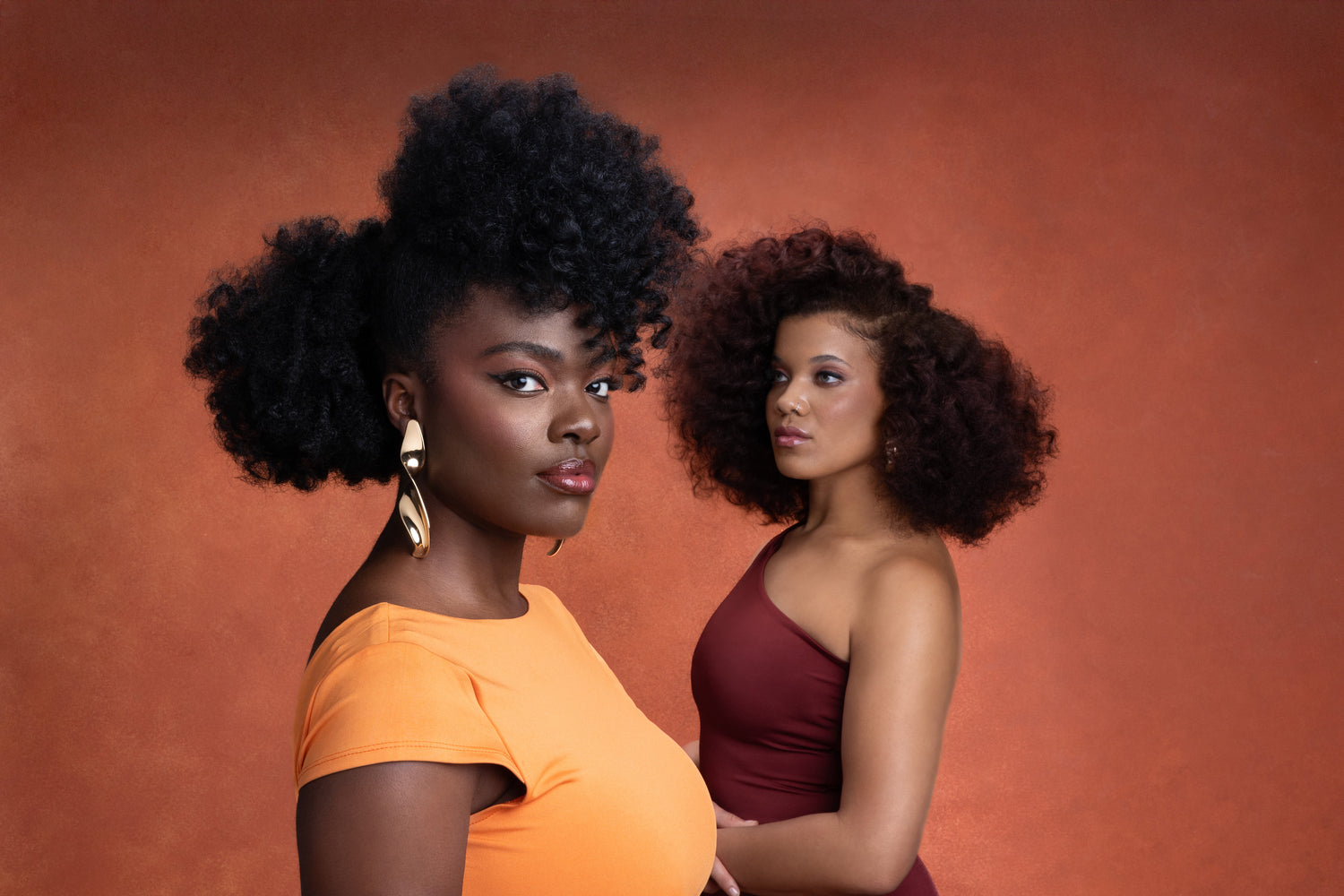Guest Blog by Adwoa & Solomon of @adeche.atelier
The Sacred Act of Haircare
Our relationship with hair is layered. It’s tied to culture, to childhood, to some of our warmest memories. From joy to frustration, it holds some of our earliest experiences of identity.

For so many of us, haircare isn’t a solo act. It’s sitting on the floor between your mother's legs. It’s your auntie greasing your scalp while catching up on family news. It’s barbershop Saturdays, the sound of the blow-dryer on full blast, and that feeling right after fresh braids. (Yes, you’ve got to let them marinate for a few days before stepping out. We’ve all been there.)
When you really think about it, doing your hair, whether it’s on your own, in a salon or at an auntie’s house, is a ritual. Not in the fantastical way you may be thinking of, but in the sense that it’s something we do with intention, over and over again. And like all rituals, it carries weight, shape’s identity and holds history.
But growing up in Western societies, that connection to our hair wasn’t always nurtured. If anything, it was made difficult. For a long time, we didn’t see ourselves reflected in the beauty aisle. Afro-textured hair was treated as a problem to solve. Something to “tame,” “relax,” or “fix.” The language alone told us everything.

Thankfully, that’s changing. Brands like Afrocenchix have emerged with better products and better understanding. Created by Black women, rooted in science and real care, they’ve helped shift the conversation from control to celebration. They treat our hair the way it deserves to be treated, that’s with knowledge, respect, and love.
And that matters. Because our hair tells stories.
In many African cultures, hair went beyond looks, it was also a form of language. Across the continent, there are styles that signal your tribe, your age, your status and even your beliefs. In some places, only trusted hands were allowed to touch your hair because it was seen as an extension of your soul. Even now, how we wear our hair can be a statement of pride, resistance, joy, or simply of being ourselves.
As artists and storytellers, we’ve come to realise just how intertwined hair is with creativity. Experimenting with different styles is really freeing and has helped us to appreciate the beauty and versatility of our hair beyond conventional hairstyles.
So, when we care for our hair, we make sure we know we are also reclaiming something. Honouring the beautiful people who came before us, those who embraced their hair in all its forms, without shame, and choosing to move through the world with intention and pride.

